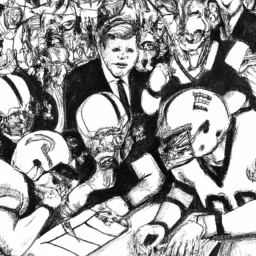Arrr! Tennessee 'n Virginia AGs be settin' sail 'gainst NCAA, claimin' their NIL-recruitin' rules be breakin' th' law, mateys!
2024-02-01
Arr, me hearties! Thar be a mighty squabble 'twixt the Tennessee and Virginia attorney generals and the NCAA! They be claimin' that the association be a scurvy dog, unfairly wieldin' rules to keep the athletes from earnin' their pieces of eight!

While the investigation is ongoing, the attorney generals are requesting a temporary restraining order and preliminary injunction that would prevent the NCAA from enforcing NIL recruiting rules during the lawsuit. The NCAA has expressed concern about this legal action, stating that it would create a "wild west" atmosphere and harm student-athletes.
The University of Tennessee has been critical of the NCAA's handling of the investigation, with the chancellor writing a letter to the NCAA president expressing frustration with the lack of clarity and guidance on NIL compensation. The university has vowed to support its student-athletes and provide them with the necessary tools for success.
Overall, this lawsuit represents a challenge to the NCAA's authority over NIL compensation and highlights the ongoing debate about the rights and opportunities for college athletes.